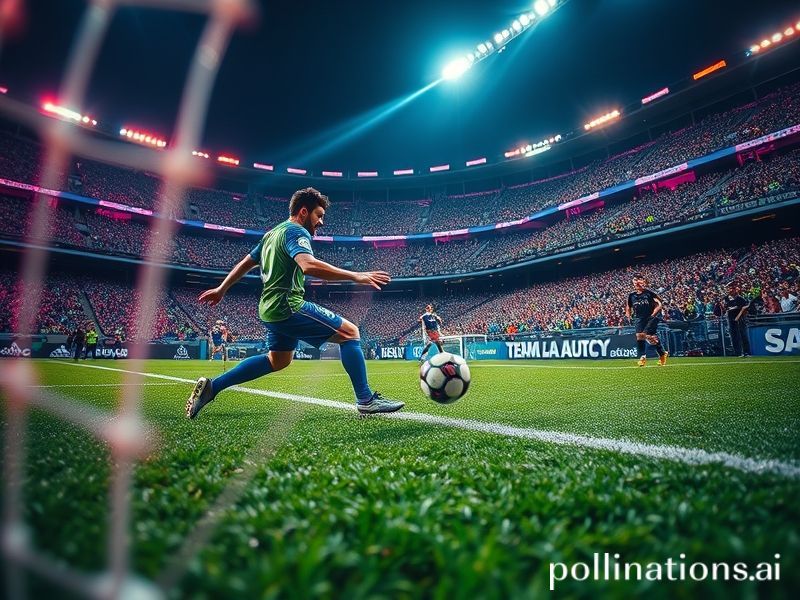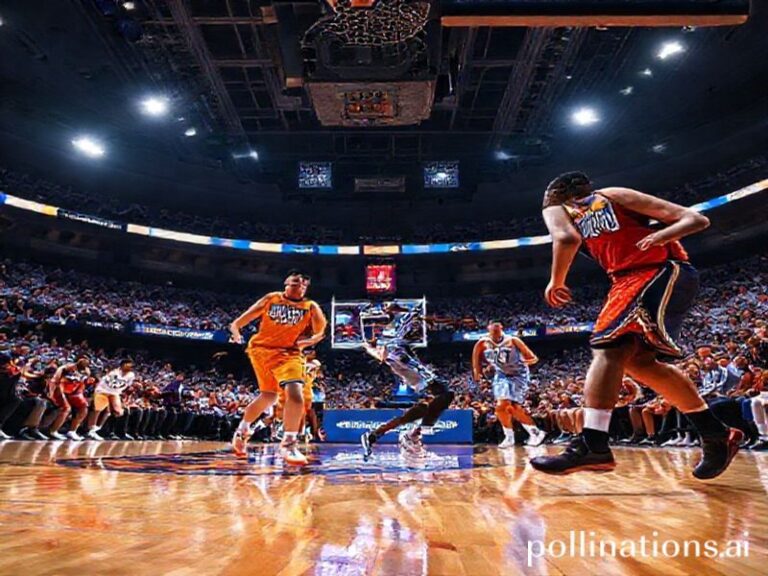Seattle vs Miami: When MLS Cosplays World History and the Planet Politely Changes Channel
Seattle Sounders vs. Inter Miami: A Glittering Mid-Table Skirmish Disguised as World History
By Dave’s Locker International Desk
If you squint hard enough from the International Space Station, the emerald smear of Seattle and the neon smudge of Miami look like two bruises on America’s coastal underbelly. Between them, last Saturday night, a football match broke out—MLS edition—soaked in the sort of hype normally reserved for papal elections or new iPhone releases. Seattle Sounders versus Inter Miami: a fixture marketed as the “Clash of the Coasts” but which, in the cold light of Monday morning, felt more like two marketing departments arm-wrestling over who gets to use the word “global” more often.
Internationally, of course, nobody noticed. In Madrid, fans argued about Jude Bellingham’s latest haircut. In Lagos, the generator powering the viewing party cut out just as Messi was warming up. In Jakarta, a pub full of insomniac Liverpool supporters shrugged, asked if there was extra time in American “soccer,” and went back to arguing about Mohamed Salah’s contract. Yet MLS keeps insisting it is “expanding the footprint,” which is a polite way of saying it is stamping the Nike swoosh on every available square inch of human consciousness.
On paper, the plot was irresistible: Seattle, the caffeinated outpost of grunge and Boeing, versus Miami, the humid fever dream where crypto bros launder optimism into waterfront condos. One franchise owned by a comedian who made his money selling gig-economy dreams; the other by a football deity who has already sold his soul to Apple TV+. Somewhere in between, 22 men in garish socks tried to remember whether the offside rule still applies when the broadcast cuts to a drone shot of downtown skyscrapers.
The game ended 2-1 to Seattle, a scoreline that will matter exactly until the next influencer posts a brunch photo. Jordan Morris, the great American hope who once looked like a Viking and now resembles a Viking who’s discovered craft IPAs, bundled in the winner during what the Americans charmingly call “stoppage time” and the rest of the planet calls “injury time because humans are fragile.” Messi, meanwhile, floated around like a man who read the contract appendix and realized he only has to sprint if the camera’s drone is at eye level.
From a global perspective, the match was a Rorschach test. Europeans saw confirmation that MLS is still a retirement spa with excellent Wi-Fi. South Americans saw a continent exporting its talent northward in exchange for favorable tax jurisdictions. Africans saw another reminder that the real action happens in the comments section beneath pirated highlight clips. Asians noticed that the referee’s headset looked suspiciously like the same brand used by their local K-pop concert security. Everyone, everywhere, agreed that the pink Miami away kit was an affront to the human retina.
Yet the broader significance is undeniable, in the same way that a billboard is undeniably there. MLS has become the league where geopolitics goes to cosplay. Saudi Arabia buys Newcastle; Qatar airlifts David Beckham into its desert World Cup brochure; Apple beams Seattle-Miami into 100 countries in 4K, pausing only to remind viewers that democracy can be purchased for $6.99 a month. The actual football is incidental; what matters is the metadata—literally, in this case—proving that late-stage capitalism can monetize even a goalless first half.
Post-match, the Sounders’ coach spoke of “building culture,” a phrase that once meant folk songs and now means NFT season-ticket stubs. Miami’s manager, eyes glazed from the humidity or perhaps from existential dread, promised to “keep growing the brand,” which sounds less like sport and more like a dermatological condition. Somewhere a child in Nepal wearing a knockoff Messi jersey wondered why the grass looked so perfect when the village pitch still has Himalayan goat droppings on the halfway line.
And so the caravan rolls on—to Austin, to Toronto, to whichever city next promises tax abatements and a downtown stadium within rideshare distance of artisanal tacos. The world will keep not watching, yet somehow the broadcast rights keep selling. That, dear reader, is the true Seattle Sound: the gentle hum of a planet being monetized in real time, punctuated by the occasional ironic cheer.







